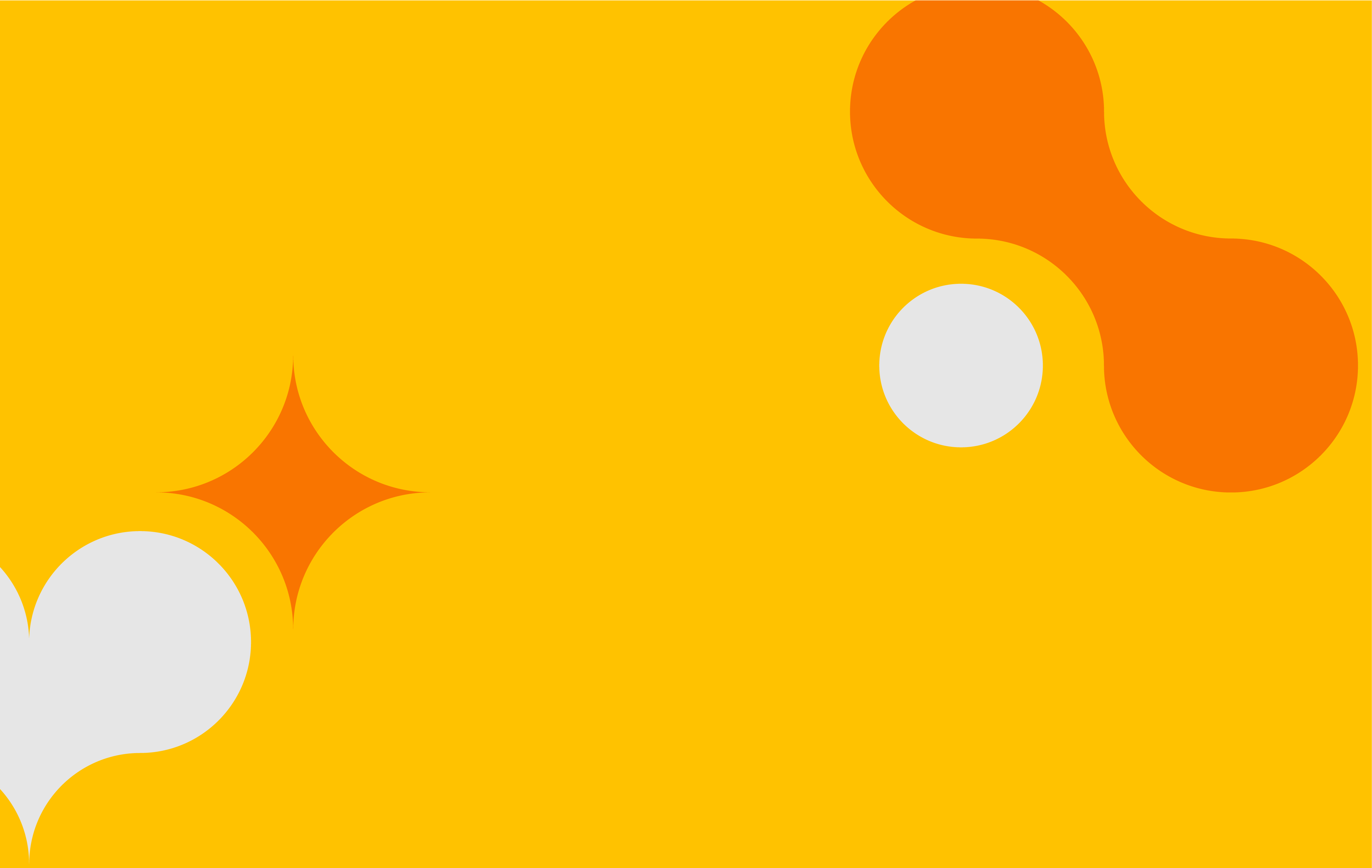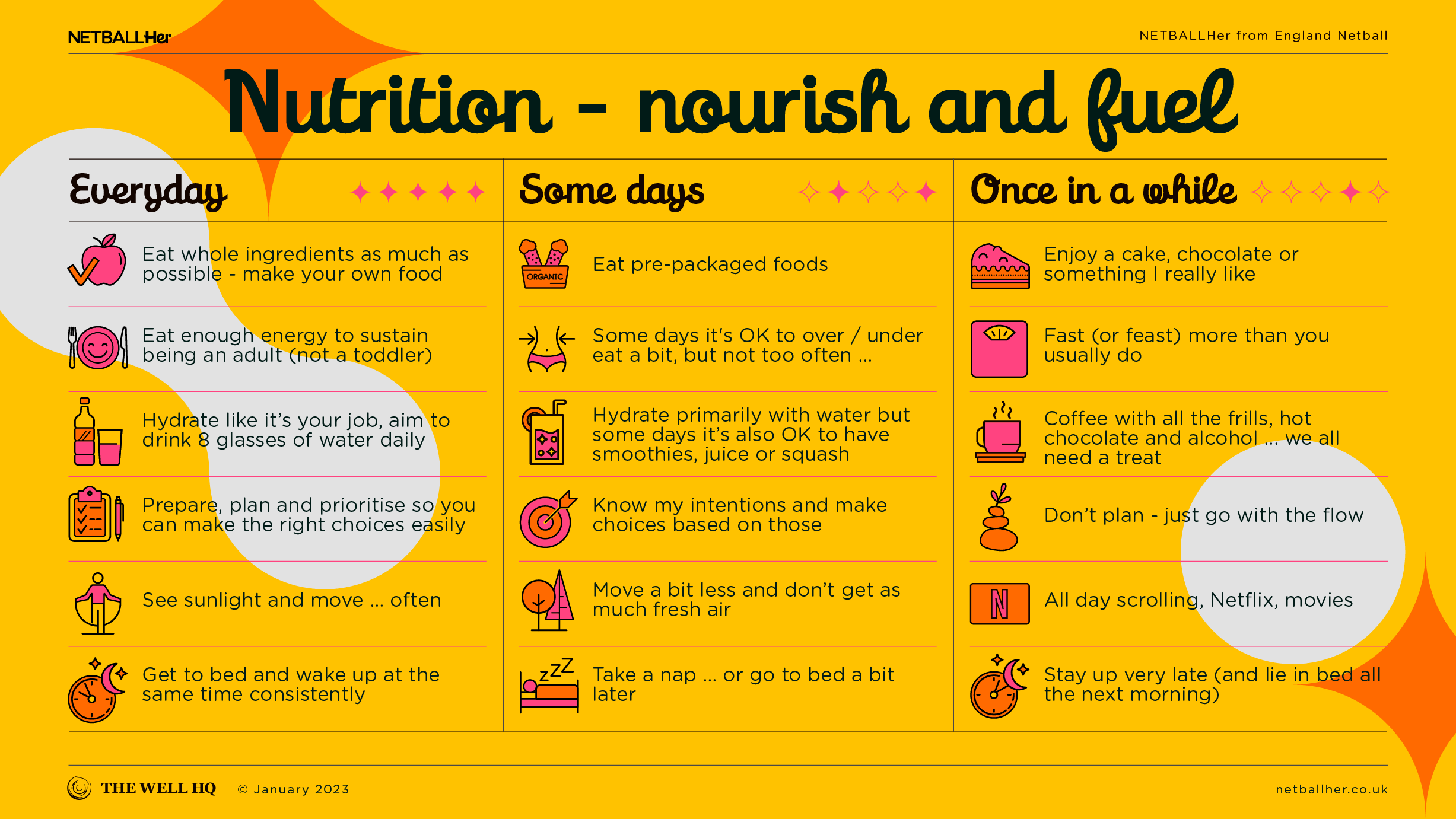Click play for an audio readthrough of this article
Knowledge = power? Almost. Re active women and food, it’s more like ‘the right knowledge + priorities + vigilance = power’
So you know a lot about nutrition, both in general and how to use it to get the best from your training. That’s all you need, right?
Not quite.
There are a couple of things to expand upon. One, you need to remember women aren’t men (best not forget, now), and two, there’s often a big difference between knowing and doing. Ready? Let’s eat …
Knowledge is relative to unique you
There’s knowledge and there’s the right knowledge. Should probably caps that up: there’s knowledge and there’s the RIGHT knowledge.
If you’ve spent any time on NETBALLHer, you’ll know the recurring theme that much of the best practice in sport comes via research conducted on men. Deep shock emoji – females and males are physiologically very different, hence many of the standards out there around nutrition don’t apply.
More than that, we’re all individuals and quite unique, in terms of our body, physiology and life stage. There’s no one else like you.
So as much as knowledge is good. The RIGHT knowledge specific to you may be something different.
The knowing / doing gap
The second point, and the one we’ll get stuck into, is the knowing / doing gap. Some of us may have all the correct knowledge but still veer away from the best choices. This is easily done (keep reading) and it’s a problem that exists from the bottom to the very top.
The 2023 Female Athlete Health Report invited 769 UK athletes — representing a wide range of abilities and activities – to participate in a wide-ranging survey designed to bring evidence-based insights and recommendations to UK sport.
The survey revealed that 50% of the sample audience (remember, professional athletes) agreed that they have consciously restricted their food intake in order to improve their performance, while 52% did so in order “to fit in or look the part in their sport”.
An astonishing 91% agreed with the statement: “I have worried about how many calories I am eating”, with 16% (that’s about one in six) stating that these worries occurred “all the time”.
Further, 51% of the sample said they had experienced at least two symptoms of RED-S, while 37% experienced three or more symptoms and 18% experienced five or more symptoms. For more on RED-S click here.
As the report notes, these findings are particularly concerning given the high incidence of clinical and subclinical eating disorders among athletes and the terrifying mortality rates they present.
What does this all mean? It means many of those at the top of the tree (with support and resources on-side) are doing diet wrong.
Does this mean we’re all in trouble?
You might think that’s a bad omen. If moneyed players at the top of their game – who have every advantage and gold-standard-help at their disposal – can’t get their diet right then what chance do the rest of us have?
Better than you’d think. We reckon you have a great chance at nailing nutrition so long as you’re prepared to take a good and honest look at yourself, your behaviours and the pressures you have to fight against. That takes us to …
Social media
Social media can be a big problem – especially for Her. The filtered photographs, the sounds-too-good-to-be-true advice, the shaming, the ‘influencers’. If we’re not careful, social media can easily drive us away from good choices and towards unrealistic (often harmful) goals.
The perfect body shape (perfect to whom?) is often presented as slim and toned with no fat. 1) That’s not probably an attainable or sensible goal in general and 2) if you want your body to perform at peak you’ll need to feed it more than lemon and mouthwash.
Because the diets peddled on social media (to achieve that fabled perfect body) will take your sporting performance not to optimum, but floptimum. Carbs and fats are essential in female fuel. Going without enough of either means shorting your energy needs and that will knock your sporting performance. Oh and this same logic goes for fasting, intermittent or otherwise, too. It doesn’t work so well for women.
Many of us know this. We know it. But even so we can still be seduced by the social media sparkle. We have to be mindful and vigilant to keep outsider influence at bay and this can be much easier said than done …
Case and point
One British rowing club has an Instagram account dedicated to the food that their male rowers consume; such is the amazing volume of grub they have to eat to fuel their seriously hard training. That’s cool, but this kind of celebration of food is nowhere to be found among active women.
For women, the celebration of food is more a celebration of no-food. Active women’s food culture is more about deprivation and restriction coupled with a depressing lack of enjoyment … plus an obsession with body size and shape. The pressure to look like <insert social media influencer here> can feed into an emotional relationship with food that’s a) damaging and b) difficult to shift.
Even active women with superior knowledge can get sucked in by glossy hype and others’ influence.
Side order of shame
On that, then, women are more easily subjected to another kind of social influence. Peer pressure. Let’s say an active woman goes out for lunch with her BFFs. Our active woman entirely understands her nutritional requirements to power her training …
It’s all going to plan until BAM! One BFF orders the small green salad and there’s a ripple effect on the whole table. Our athlete, instead of ordering a balanced plate with, shock horror, some carbs and healthy fats, gets sort of shamed into ordering something similar. Something small. Something entirely unsuitable.
Being susceptible to outside influence (and it can be hard to stay strong) can, when left unchecked on a long enough timeline, degenerate into an unhealthy emotional relationship with food. This’ll do far worse than underserve your fuel needs – it could progress to a full-on eating disorder and this is possible at any age. It’s not just the youngsters.
Dr Emma once mentored an aspiring sports scientist who was researching women’s health for a PhD. Some years prior, this colleague had been a successful athlete but had had such an unhealthy relationship with food that she became anorexic and, as a result, developed osteoporosis – a bone-weakening condition usually found in 80-year-olds – at just 21-years-old.
Her story is sadly common. There are tens of thousands like it.
Control your intake … your mental intake
Knowledge = power, so goes the mantra. But when it comes to active women and food, the formula is more like the correct knowledge + priorities + vigilance = power. And it’s something we need to be aware of every day.
Educating girls about the importance of a balanced diet is massive, but it’s just as important we lean on reliable sources of information that speak to her. It’s important we stop promoting stereotypes that perpetuate women’s insecurities.
We need to let the stench of perfection around a woman’s shape, weight and size dissipate into the ether as we focus with purpose on how a body functions … not how it looks.
We would love every active woman who reads this – whether professional, amateur or just starting out – to cultivate some consciousness around food and eating behaviours. We can all start with our own behaviours and the messages we send into the world.
Men or women, anyone can make a decision to support healthier female behaviours around food. We can all become ambassadors for fuel that powers physical performance and maintains emotional health …
Because right now, the appearance of one costs too many women the other.
As a reminder, the content of the course belongs to The Well HQ. You have permission to access and use the content yourself or, if you are an organisation, for the number of users selected, but are not otherwise permitted to share such content with others, all in accordance with our Course Terms and Conditions.

